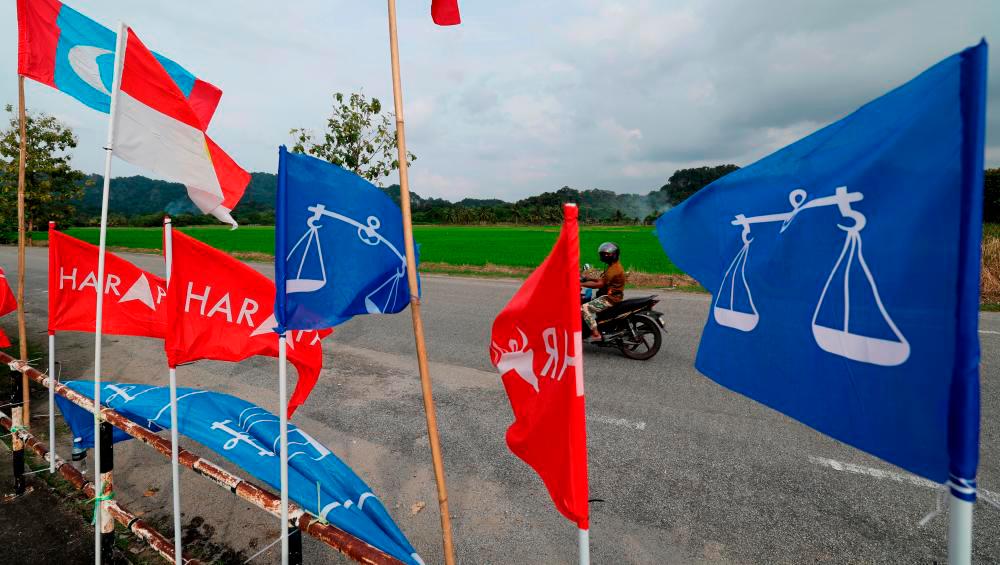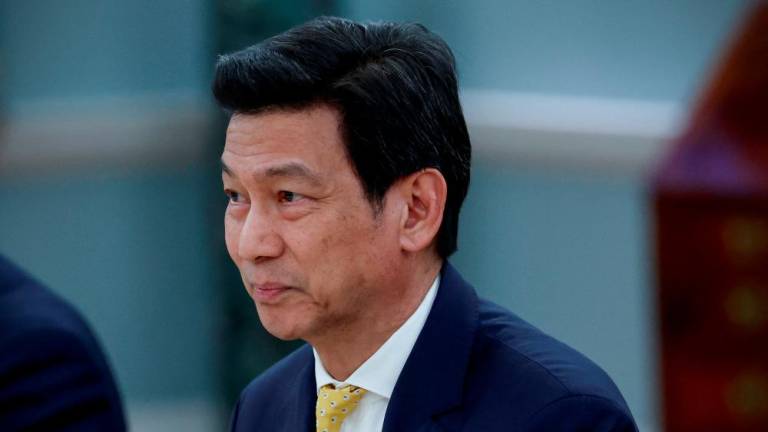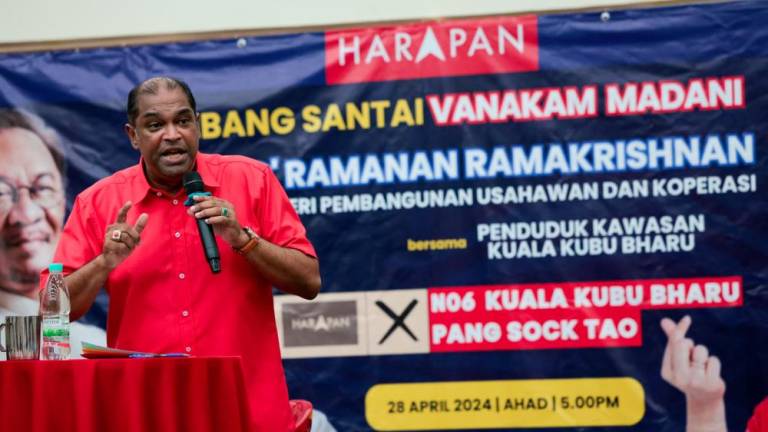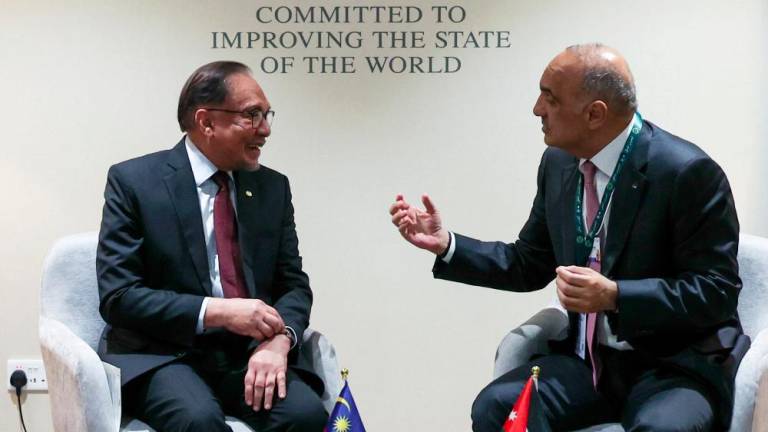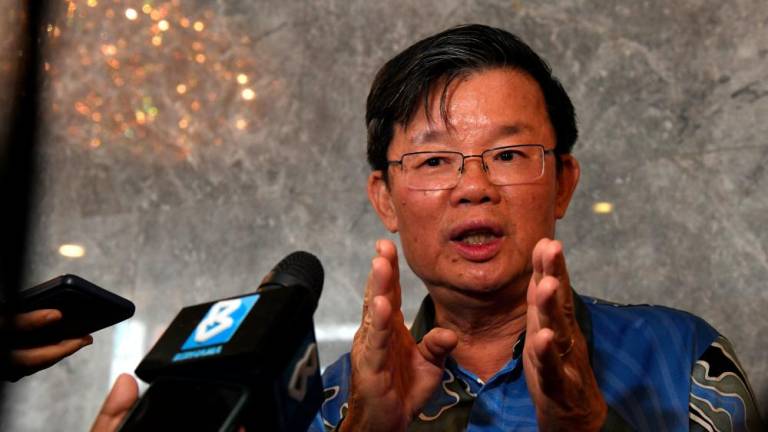LORD Krishna and Master Confucius both have valuable advice for the politicians battling to win on Nov 19. “Always perform with detachment the work you must do; only
by work performed with detachment does a person reach the highest. The wise should act with desire to maintain the world order,” Krishna declares in the Hindu scripture Bhagavad Gita. By detachment, he means self-sacrificing selfless service for others. This spirit of sacrifice promotes well-being for everyone including the sacrificer.
Confucius, in spelling out the requisites of government, asserted that most importantly is gaining confidence of the people. “If the people have no faith in their rulers, there is no standing for the State,” Confucius declares in the Analects. “No standing for the state means the state collapses, and hence, earning the trust of the people is more important than providing sufficiency of food or being militarily prepared,
he explains. When the state collapses, all is lost.
From the Confucian text, it is clear that “the people” refers to the entire population and not just to a segment. Government leaders must be seen to be sacrificing themselves in order to perform selfless service for all the people to gain their confidence. However, research studies over many years have consistently shown that politicians as a class are the least trusted by the public.
As a class, politicians need to redeem themselves and heed the advice of the Sultan of Selangor, Sultan Sharafuddin Idris Shah, who warned last month that treacherous, cheating and power-abusing leaders out to amass wealth for themselves will only be hated by the rakyat as their misdeeds can destroy the country. The Sultan called on leaders to come to the realisation not to abuse the trust given to them, and he emphasised that honesty and trustworthiness should be part of their identity.
Ponder whether a candidate is standing so that he can render selfless service, or is he drawn towards power and money. The temptation is overwhelming. According to reports, a member of Parliament gets RM25,700 a month in salary and allowances. This excludes the allocation for services. If you complete two terms, you get a lifetime pension, and if you are also a state assemblyman as well as a Cabinet minister, you earn multiple pensions.
It is said that old-timers holding multiple positions can draw RM100,000 a month in pensions. Is this why there is a record-breaking number of candidates standing for election? Also, with every party in a winning coalition demanding an adequate number of Cabinet seats as its due reward, Malaysia is set to maintain a record number of ministers and deputy ministers.
So important is the pension that one senator four years ago argued that the three-year term of office be changed to a five-year term so that all senators, who are mostly political appointees, can be guaranteed a pension. It is claimed that this will encourage them to voice issues of public interest.
You do not even have to be a Yang Berhormat to gain from party politics. Divisions and branches of parties in government expect a flow of business contracts to them so that there is money to disburse to activists and supporters to retain their loyalty. Politics is surely the best way to earn a “top 1%” income, and once elected, you want to be re-elected as the pension will enable you to live in style until you die.
To secure victory, party candidates have focused on the immediate concerns of the people. These concerns became readily evident well before nomination day as public surveys showed that top of the agenda were bread-and-butter issues such as cost of living, prices of goods, employment, salary rates, educational opportunities, eradicating poverty, healthcare and housing. The polls showed that the rakyat were less concerned over the issues of corruption and climate change.
Unsurprisingly, the manifestos of Barisan Nasional, Pakatan Harapan and Perikatan Nasional reflect the rakyat’s sense of priorities. These manifestos encapsulate the pressing economic needs of the people and are fairly weak in regard to the wider goal of institutional reforms for better governance and the need to decelerate climate change.
Only the Gerakan Tanah Air (GTA) coalition under Tun Dr Mahathir Mohamad acknowledges the utmost importance of eliminating corruption. Its New Malaysia Agenda has as its No. 1 priority a clean, efficient and credible leadership free of corruption, money politics and abuse of power. Unfortunately, the GTA manifesto is weak on climate change as it places good environmental management and biodiversity conservation at the bottom of its agenda.
The drafters of all these manifestos should have designed a concentric-circle framework, with the smallest circle inside the second circle, and both enveloped by the largest circle. The first circle is the immediate goal of providing a better livelihood for all people, especially the bottom and middle income categories. The second circle should list specific institutional reforms to weed out corruption, such as disallowing politically connected individuals and companies from tendering for government contracts.
The third circle should clearly warn the populace that their existence will be endangered if we fail to turn climate change around before the year 2050. The manifestos should offer measures such as banning all fossil-fuel vehicles in 2030 and making electric vehicles affordable, with bare-as-bone car models tagged at RM40,000, so that owners of rickety old jalopies will be willing to discard them.
As all three circles rest on the same baseline, this framework promotes the idea of three simultaneous priorities – economy, integrity, ecology – to be pursued at the same time and with the same zest. All coalitions should cooperate to advance these common priorities, while they compete over the specifics. What our country needs is political competition to form the most competent government and not competition over the priorities of government.
No manifesto or style of administration should promote favouritism towards sectarian demands, because it is the duty of any capable government to serve the interests of
all citizens. Any skewing towards sectarianism will render that government incapable of establishing human unity vital for turning climate change around to avoid a Doomsday scenario in 2050.
The writer champions
interfaith harmony.
Comments: letters@thesundaily.com




